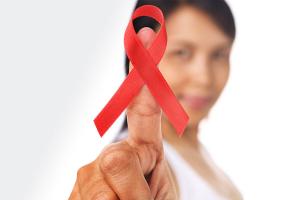National Women and Girls HIV/AIDS Awareness Day (NWGHAAD) is coming up on March 10. We observe NWGHAAD each year to highlight the impact of HIV and AIDS on U.S. women and girls. As we prepare for this year’s observance, we want to encourage you to start planning along with us and to promote...
Ed. note: This press release is cross-posted from the Centers for Disease Control and Prevention (CDC). The original post date was November 28, 2017. Read the original press release. A new CDC Vital Signs report published today finds that HIV is being diagnosed sooner after infection than was...
Ed. note: This blog is cross-posted from blog.aids.gov . The original post date was November 24, 2014. It takes courage to share a personal story, but they often are the most powerful. They inspire us, stick with us, and change the way we think about the world. Personal stories also remind us that...




